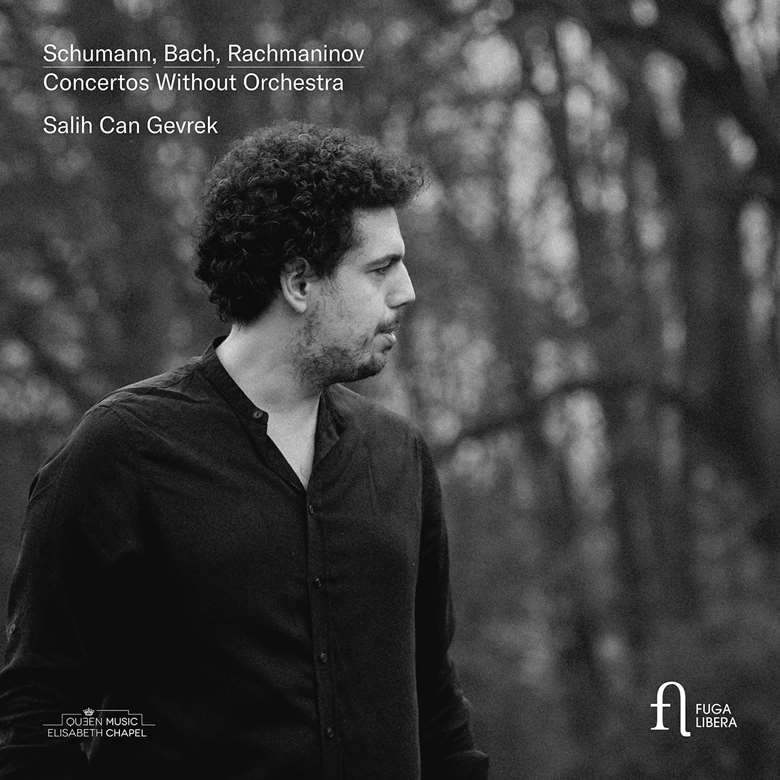Review - ‘Concertos without Orchestra’ (Salih Can Gevrek)
Bryce Morrison
Friday, August 30, 2024
He prompts your awareness in Schumann’s tortuous F minor Sonata of Clara Schumann’s fears for her husband’s genius, for a mind and imagination that soared gloriously but dangerously close to the edge

Salih Can Gevrek is a 32-year-old Turkish pianist whose debut album, ‘Concertos without Orchestra’, is a disparate selection of music by Schumann, Bach and Rachmaninov. Although it is not hard to think of, say, Alkan’s Concerto for Solo Piano or Chopin’s Allegro de concert in an orchestral light, it is difficult to consider Rachmaninov’s supremely pianistic writing as in any sense orchestral. The claim, too, that the Moments musicaux are rarely recorded is wide of the mark (outstanding versions from Lazar Berman and, more recently, Alfonso Soldano, Steven Osborne and Boris Giltburg – among others – adorn the catalogue).
Yet such observations, while necessary, seem niggling when you listen to Gevrek’s boldly impassioned playing. He prompts your awareness in Schumann’s tortuous F minor Sonata of Clara Schumann’s fears for her husband’s genius, for a mind and imagination that soared gloriously but dangerously close to the edge. A product of ‘The Romantic Agony’, the reeling Prestissimo possible finale implodes, seemingly blowing itself apart. The Andantino, based on a theme by Clara, quickly moves from a temporary oasis of calm to stormier waters, and it is this constant sense of unease that is so tellingly communicated by Gevrek. Even with celebrated recordings by Horowitz, Bolet and Pollini available (which, again, hardly make the sonata ‘little known’), Gevrek leaves his mark. He is no less successful in Bach’s Italian Concerto, finding an ideal poise in the central Andante’s floridly embellished aria as well as an admirable clarity in the part-writing of the exuberant first and third movements.
But Gevrek’s truest triumph comes in the Rachmaninov. He is notably sympathetic to the composer’s Romantic notion of polyphony, of the multilayered nature of the writing. He spins off the whirling figuration of No 1 as to the manner born and unleashes a Siberian snowstorm in Nos 2 and 4 (the former played in the more concentrated revised edition). He captures the grave, processional tread of No 3 and concludes the final Maestoso’s massive carillon of Moscow bells with an apt clap of thunder. And if neither he nor any other pianist can match Lazar Berman’s massive strength, his bear-hug of a performance (the early Mezhdunarodnaya Kniga recording rather than the more familiar later one for DG), he holds your attention in urgently committed playing throughout.
This article originally appeared in the Autumn 2024 issue of International Piano. Never miss an issue – subscribe today












